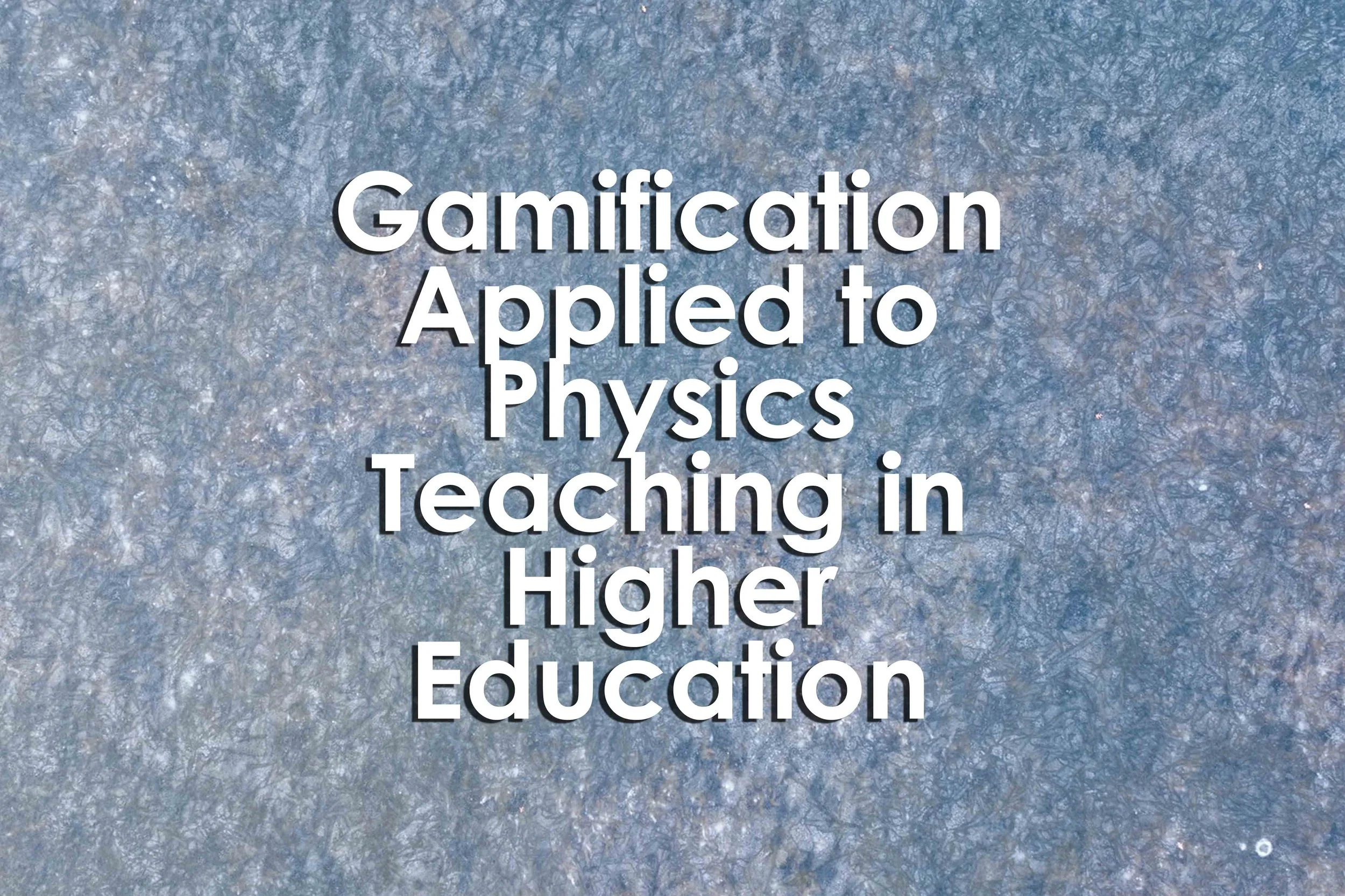Gamification Applied to Physics Teaching in Higher Education.
Gamification Applied to Physics Teaching in Higher Education.
Gamification Applied to Physics Teaching in Higher Education.
By Gaston Sanglier Contreras
Abstract
“This article shows the implementation of a didactic research on the application of anew tool or methodology called Gamification that involves the student, the ICT and the teacher in the same classroom, where through this technique contents, procedures and attitudes are learned in a playful environment while enhancing the motivation of students. It has been detected, and it does not come from now, but from much further back, that the subjects called 'practical' and among them Physics, are the most difficult to assimilate for most students. Sometimes the student is faced with concepts that are not easy to assimilate and even less to understand by the application of a simple mathematical formula. This leads to a great demotivation of the students that make them abandon this type of subjects and opt for more theoretical careers. This is a fact that is more than contrasted in the current Spanish University, where the number of students enrolled in the career of Physical Sciences continues to decrease. The following are some interesting data regarding Physics degrees in Spanish universities (Sánchez, 2004).- The average number of years it takes students to complete their degree from the time they enter the university is 6.49 years.- The percentage of students who abandon their studies without completing them is as follows: Barcelona (40-50%), Autónoma de Madrid (50%), Vigo (31.81%),Valladolid (<3%), Oviedo (38%) and Cantabria (55.86%). However, despite the above data, Physics will continue to be very important and is far from being the finished science that many predict. It will continue to be one of the main sciences of this century, not only for its own sake, but also because of what other disciplines will need from it. The purpose of this project was to achieve a more significant and global learning of students in the concepts taught in Physics class and that students positively value the introduction of gamification as a motivational tool and support to strengthen the knowledge of the subject. The use of the gamification tool has led to an average improvement of 33.81% in students' grades.”
Reference
Contreras, G. S. (2021). Gamification Applied to Physics Teaching in Higher Education. An Alternative to Achieve Better Results. http://www.m-hikari.com/ces/ces2021/ces1-2021/p/sanglierCES1-2021-5.pdf
Keywords
Gamification, education, learning, game dynamics, didactic strategy, research

